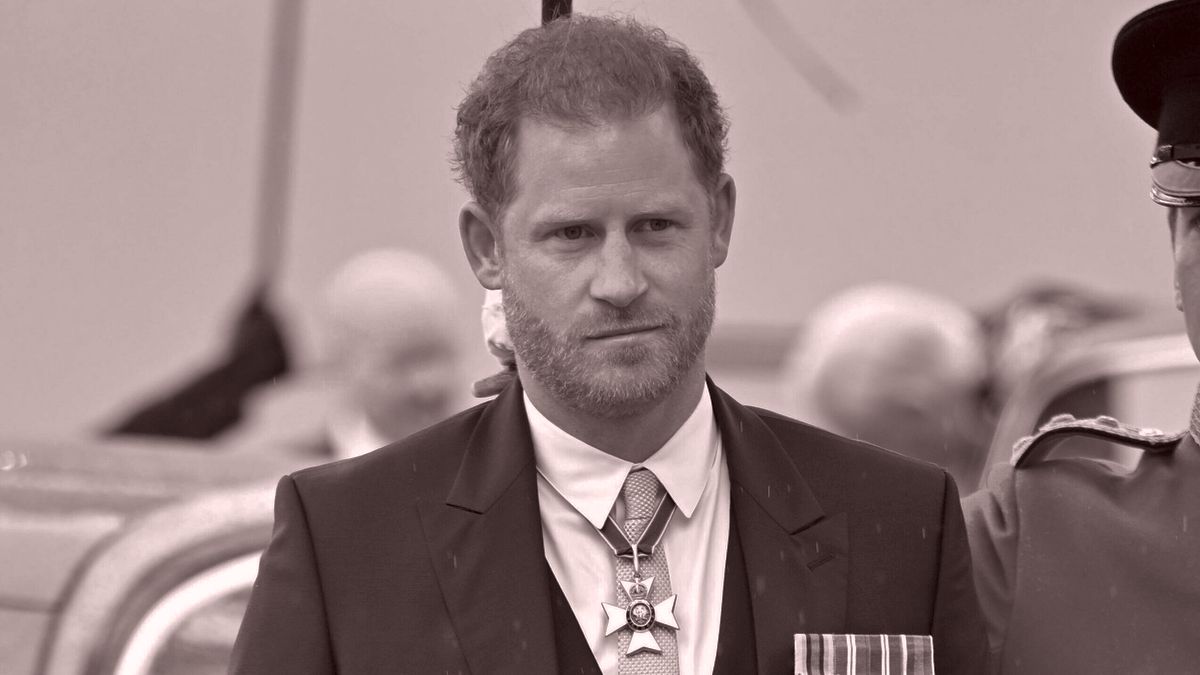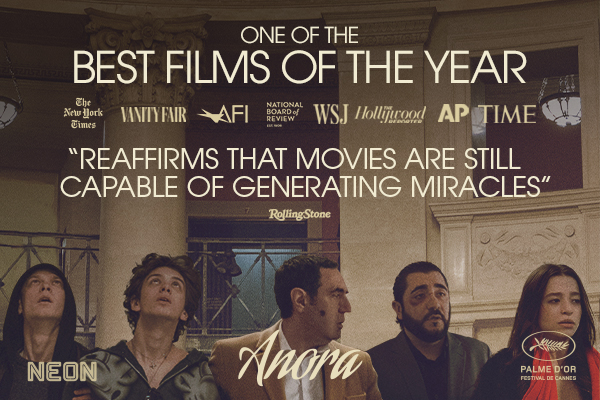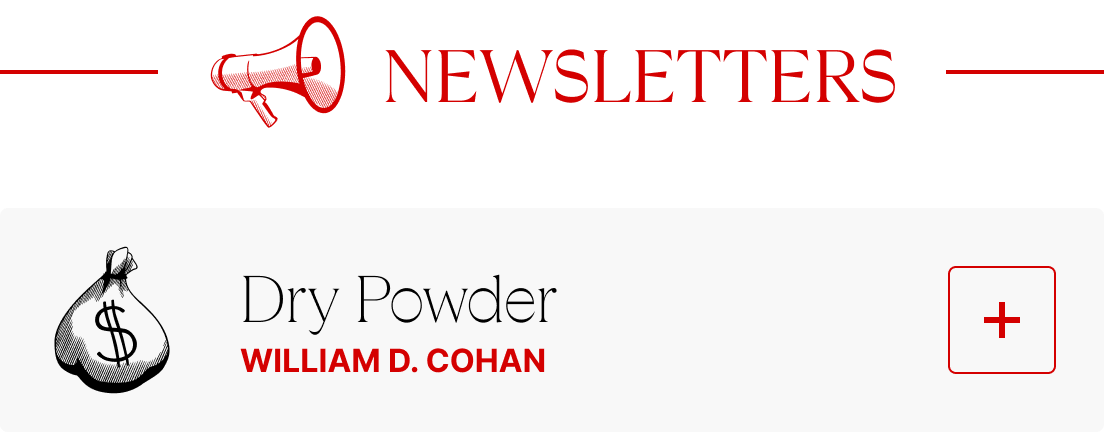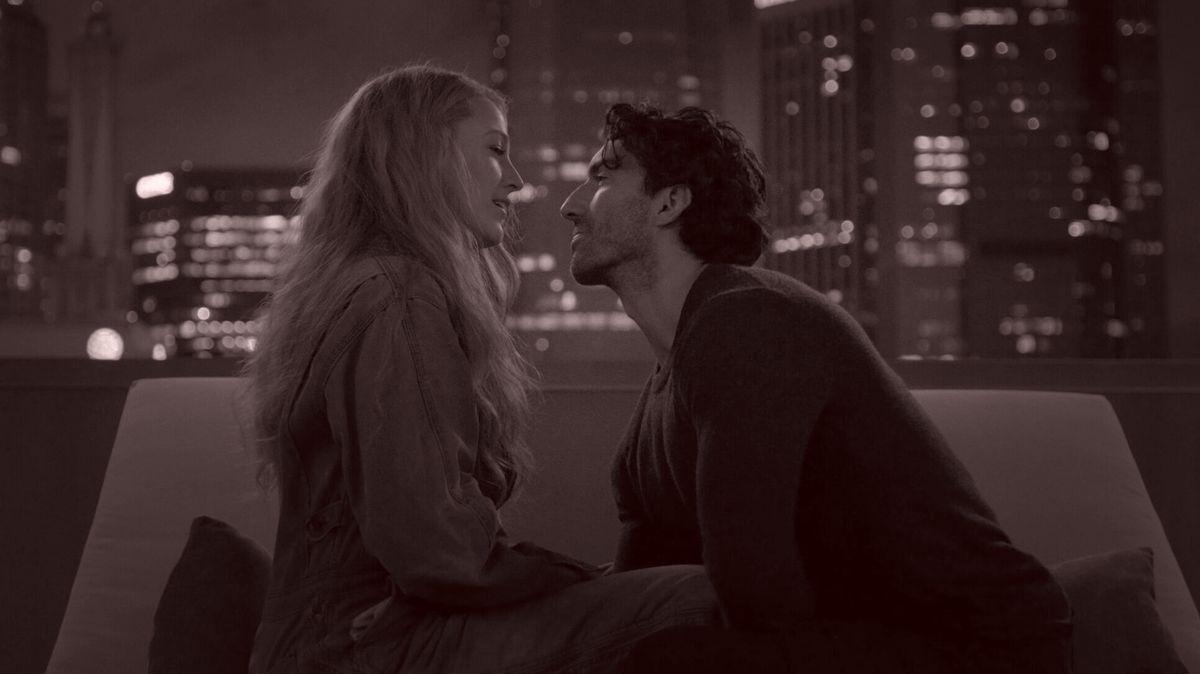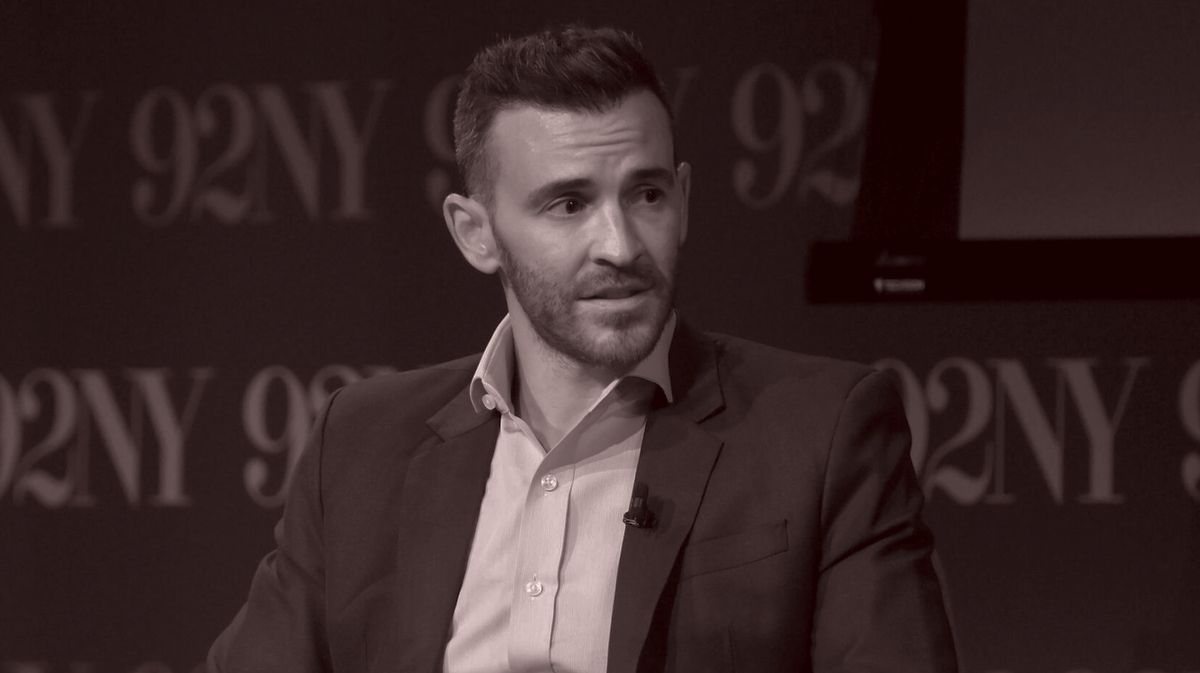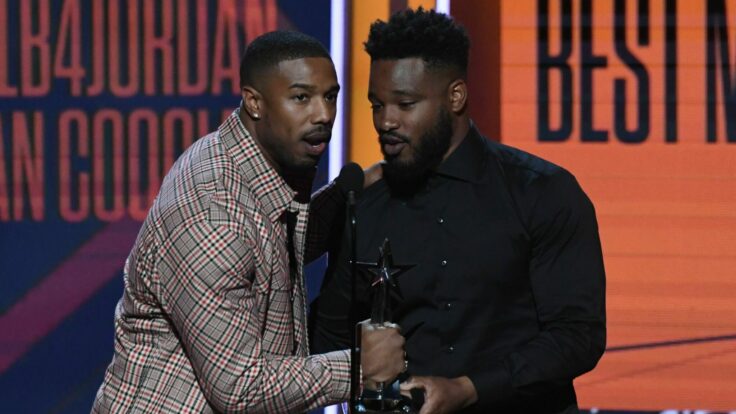Welcome back to What I’m Hearing, now fully in holiday mode.
Nobody had a better Christmas than Brandon Riegg and Gabe Spitzer, the heads of unscripted programming and sports, respectively, at Netflix, which escaped its first NFL broadcasts without the tech meltdown that plagued last month’s boxing match. Okay, Beyoncé did pretty well too, and Nielsen says nearly 65 million U.S. households saw part of a game, or an average of about 24 million viewers across both. Big, though 5 million less than last
year’s Christmas numbers on broadcast.
Eriq Gardner had a less glamorous Christmas, poring over the latest filings in the It Ends With Us Blake-smearing scandal that’s now metastasized into a widening legal war. He advances the story the town can’t stop talking about and analyzes the court papers, then he tackles another
gross media story: the upcoming trial over the Rupert Murdoch media empire’s U.K. coverage of Prince Harry.
💫💫 Programming note: I’ll be back on Monday with my Hero of the Year issue (it’s not who you think! Also, to the person who pitched himself: You’re adorable!). Then Scott Mendelson will be here next Thursday with his big year-end box
office analysis…
Okay, take it away, Eriq…
|
|
|

|
Eriq Gardner
|
|
- Blake v. Baldoni, the next steps: Last weekend, The New York Times published “Inside a Hollywood Smear Machine,” the now-viral exposé detailing how Justin Baldoni’s publicists smeared co-star Blake Lively during the release of It Ends With Us. Notably, the Times didn’t break the news of Lively’s complaint to the California Civil Rights Department—TMZ did—but the paper had a meticulously reported, 4,000-word
piece, complete with graphics, ready to go as word spread. Clearly, the Times had been sitting on a draft for some time. But did anyone bother to confirm with the relatively obscure California agency whether Lively’s complaint had actually been filed? And why there?
The answers might offer a glimpse into where things are headed. Typically, coverage of a legal development follows the event. But in this case, it feels like the story itself was the
objective. And that could have ramifications.
As Matt detailed on Monday, Lively’s highly specific complaint—and the stories it generated—were built on information retrieved from the cellphone of Jen Abel, a Baldoni publicist who worked for Stephanie Jones at Jonesworks. Abel handed over her phone
before leaving the firm this summer, and Jones, in turn, provided the sensitive contents to Lively’s legal team under subpoena. But did Jones, in effect, invite that subpoena as a way to sidestep her confidentiality obligations to a former client? Matt noted her conspicuous absence from Lively’s complaint (and the Times story, too). I’ll add this: As far as I can tell, Jonesworks was the only entity subpoenaed. Baldoni himself didn’t get one. That seems… odd.
So
given this, why did the story of Lively’s complaint get out? Was it, to echo what Lively told the NYT, to pull back the curtain on sinister retaliatory tactics aimed at those who speak up about misconduct? Perhaps. That seems to be the prevailing narrative. And, certainly, Lively should be able to address alleged sexual harassment on a movie set without being targeted by a coordinated smear campaign. Filing with the Civil Rights Department may indeed be a prelude to a lawsuit:
It commands the gravitas of a government body and offers certain privileges, like reduced defamation risks and the perception of seriousness, without requiring immediate escalation.
But here’s a more cynical theory: Cognizant that Baldoni was on his way out as a client, Jones decided to dish dirt as an act of her own retaliation. Abel’s phone, I’ve been told, wasn’t owned and issued by Jonesworks. So Jones took her employee’s phone—was that even legal?—and used its
contents to arm Lively’s team with damaging material. If so, the latest stories may be the result of yet another layer of P.R. rat-fucking.
Is that what happened? I can’t say for sure, but Bryan Freedman—Baldoni’s lawyer—certainly thinks so. Freedman told me that upon learning her firm was being fired by Baldoni’s company on August 30, Jones insisted she couldn’t be terminated until the expiration of her contract—and instead, demanded $200,000. When
Baldoni wouldn’t agree, Freedman said, Jones “weaponized” Abel’s texts and “conspired” with Lively’s team to help them file the complaint. “Faced with losing yet another client, [Jones] resorted to her well-reported tactics and attempted to decimate her own client,” Freedman told me.
If Freedman files a lawsuit, as he has promised, he may very well investigate everyone’s motivations, plus dig into Jones’s work for and against Dwayne Johnson and
Lauren Sánchez (both former clients) and Scooter Braun (a client who is a financial backer of Melissa Nathan’s P.R. agency, which now reps Baldoni) to establish a pattern. The discovery could get messy, and there’s also the possibility of legal action from Abel over the seizure of her phone.
Jones didn’t respond to a request for comment on the matter. But on Tuesday, she filed her own lawsuit, accusing Baldoni of breaching a contract that
called for his company to pay her $25,000 a month through May 2025 and claiming that Abel and Nathan orchestrated the smear campaign against Lively behind her back. Her claim of ignorance is hard to take seriously given that on August 14, in the midst of the It Ends With Us backbiting, Jones sent her own strategy email that recommended “flooding the zone” with positive stories about Baldoni as well as mobilizing a “robust network of supporters and third-party
advocates” to provide counternarratives to Lively’s allegations. I’ve obtained Jones’s 8/14 memo, which recommends the team “prepare alternative stories.”
Interestingly, it also reveals the leadership of Sony, which released It Ends With Us, had begun hunting for leaks regarding the Lively-Baldoni fracas, and had accused Jones of having called the Daily Mail and “escalated things.” She denied the accusation, but two weeks later, Jones would be fired, leading her to
email the president of Baldoni’s company: “As you are aware, we are currently in a contract that does not include a termination clause.”
Perhaps Jones, with her new lawsuit, is now trying to get ahead of what’s coming. Either way, this saga is far from over. We’re about to get a look behind the curtain of Hollywood’s smear machines—and yes, I used the plural.
|
|
|
It’s been nearly 30 years since Rupert Murdoch’s
News Group tabloid empire allegedly first hacked Prince Harry’s voicemail messages. But rather than settle, like Hugh Grant and Sienna Miller, the Duke of Sussex is putting The Murdoch Machine on trial. I spoke with a U.K. lawyer for a preview of the legal drama.
|
|
|
Earlier this month, at The New York Times’s
DealBook Summit, Prince Harry quite spectacularly teased his upcoming showdown with Rupert Murdoch’s News Group Newspapers. In January, he’s set to begin trial over allegations that reporters at various tabloids paid private investigators to hack into voicemail messages between 1996 and 2011 in pursuit of salacious stories about celebrities. “The scale of the cover-up is so large that people need to see it for themselves,” the 40-year-old Duke of Sussex, now
living in Montecito with his wife, Meghan Markle, told Andrew Ross Sorkin.
Given the fallout from the phone-hacking scandal—including a parliamentary investigation and resignations that rattled the Murdoch empire—it’s surprising there’s never been a trial. That’s largely because News Group has spent hundreds of millions of dollars settling claims to avoid one. Under U.K. law, if a defendant
makes a “Part 36 offer” and the claimant declines, the claimant becomes liable for both sides’ legal costs if the judgment ultimately falls short of the offer. And so, one by one, high-profile victims like Sienna Miller and Hugh Grant have chosen to settle. But not Prince Harry. Whatever you think of him, the son of the famously hounded Princess Diana seems determined to see this through—and put on a show, even if, inevitably, he
becomes the financial loser.
|
|
|
A MESSAGE FROM OUR SPONSOR
|
ANORA IS THE MOST AWARDED AND ACCLAIMED
FILM OF THE YEAR.
Awarded the prestigious Palme d’Or at the Cannes Film Festival, it was just crowned The Best Movie of 2024 in IndieWire’s poll of 177 critics.
It is now nominated for 5 Golden Globe® Awards and 7 Critics Choice Awards,
including
BEST PICTURE, BEST ACTRESS, AND
BEST DIRECTOR.
A culmination of twenty-five years of filmmaking from writer/director/editor Sean Baker, ANORA is a film that
”reaffirms that movies are still capable of generating miracles.” (Rolling Stone)
Anchored by
an electrifying Mikey Madison who delivers “the performance of the year“ (Awards Radar),
ANORA is a timeless and unforgettable cinematic experience.
|
|
|
So, what kind of courtroom drama can we expect? I spoke with Mark
Stephens, a U.K. solicitor at the London law firm Howard Kennedy, who has been closely following the case. In our lightly edited conversation, Stephens shared insights on what makes this proceeding unusual, which prominent figures might testify, and why Donald Trump’s recent ABC settlement likely wouldn’t have occurred in the U.K.
|
The Time-Bar Issue &
Palace Intrigue
|
Eriq Gardner: What, precisely, is
Harry’s legal claim here, and what does he need to establish to prevail?
Mark Stephens: The claim is essentially that there was an unlawful acquisition of information by the newspaper—sometimes by hacking, but sometimes by deception. Given that in previous cases, judges have made findings about particular journalists being involved with particular private detectives who got information
unlawfully, the question is: How did they get information [about Harry] which wasn’t in the public domain? And the inability to demonstrate where the information comes from creates an inference of hacking.
But there’s an unusual feature with this particular claim because News Group says Prince Harry knew about the possibility of his claim for more than six years, and therefore it falls outside the statute
of limitations. So the first question is whether this is time-barred, and here there is an additional layer of complexity because it’s asserted that [Murdoch’s company] did a deal with Buckingham Palace to give Prince William good publicity. And as a consequence of that, members of the royal family—William and Harry—[agreed they] wouldn’t sue. So there becomes the question of first, did Harry know about the claim, and second, did he know about the compromise of the claim?
That’s quite a lot! Obviously, this trial isn’t just about how reporters got salacious information, is it?
It’s a slightly more interesting claim in some respects, because the trial is going to delve into some of the backroom deals that Harry says were done,
and are probably more embarrassing, both for the newspaper and the palace. Was there a secret deal for the newspaper to give good publicity to the royal family, and in return, they undertook not to sue? The judge has to make that determination first. If the newspaper loses the time-bar issue, I think it’s almost certain that Harry will win at least some of the unlawful acquisition of information claims. The time-bar issue is really important, which is why the newspaper is bringing in a very
eminent king’s counsel to cross-examine Harry.
Harry is scheduled to be in the witness box for four days. Any idea what he’ll be questioned about?
They’re going to try and destroy him in cross-examination, because Harry’s case is pretty straightforward. Harry says, “There may have been people in the
palace who knew about this unlawful intrusion, but I didn’t know, and therefore I wasn’t able to exercise my rights.” The newspaper, on the other hand, says, “Well, of course you knew, and you had every opportunity to bring your claim, and you just missed the time.”
Do you have any idea what damages Harry needs to win to no longer be in the red for bringing this legal
proceeding?
I think the answer is that this is not an economic case. Harry has made it clear that he’s not in it to either cover or make his cost. He wants accountability. He feels that his life has been intruded upon, that it’s had an impact on his relationships with others. And then you layer on top of that, the way in which the media treated Princess Diana, his mother. And of course, you start to understand why this is such an
issue of principle for Harry.
|
What does News Group say about the allegation of hacking?
What’s their defense other than the claim being time-barred?
They say it never happened—that the information came from perfectly legitimate, secret sources. Again, the judge will have to judge that. And what we’ve seen in the past is that judges have looked at each article separately, and said, “Well, you know, on the balance of probabilities, is it more probable than not that this was acquired
legitimately from a source,” or, “This was acquired through phone hacking or some other unlawful means.” And so that’s why I believe that Harry will win some, but not all, of his claims. Just because it’s difficult to displace the burden of proof.
Do we know if Rupert Murdoch or any of his children will testify?
No, they won’t be giving evidence. It will focus on the actual journalists and maybe some of the editors. They’ll be testifying.
The reason I asked about the possibility of Murdoch’s own testimony was Prince Harry’s comment at DealBook about how this would showcase a massive cover-up.
It’s
more of a generic issue at trial, but [the comment] does touch on how normally, information from one party is disclosed to the other side. Here, it’s the position from claimants—not just Harry, but all of them—that Will Lewis oversaw the hiding of information, the deletion of emails. That’s part of the discomfort he’s been experiencing these last few months.
|
|
|
Will Lewis, of course, the former Murdoch lieutenant, is
now the C.E.O. of The Washington Post.
Yes, there’s basically three phases of what happened you can categorize. First, pretty much industrial-level unlawful newsgathering. Then, the stage when they decided to stop it. Finally, what they did about evidence of past wrongdoings. And that’s where Harry says they deleted internal emails in a way that was
non-retrievable. Not only deleted them off the local servers, but also backup servers. And you’ll understand just how unusual that is. That is going to be an interesting area at this trial, because, of course, when you’re dealing with an inferential case where there’s no smoking gun, you’re having to piece information together. So the question becomes: Is that the action of an entirely innocent news organization that they delete all historic emails from particular mailboxes? The judge will have
to make an assessment.
Is Lewis testifying?
I don’t think he will be testifying, but he will be mentioned in the dispatches, in the evidence. And the allegations made against him—that he oversaw a cover-up or a clean-up, whatever you call it—is something, whether the newspaper wins or loses, that’s
going to raise more questions after the trial.
As for all those other journalists and editors testifying, will they have to identify their sources? Or is there a shield law to prevent that?
There is a shield law, and a very strong one in this country. They can say, “I got this from a source.” They won’t have to
identify the person, but they are going to have to identify a class of people who knew the information and could have given it to them. So, for example, someone who works at Buckingham Palace, without identifying beyond that. The difficulty is that News Group, because of the history where you’ve got journalists who have been found to be using phone-hacking rather than traditional newsgathering techniques, it appears that they did very little of the cultivating of sources and relied much more
heavily on paying private detectives to gather information.
|
What impact might this trial have? What’s the state of
Murdoch holdings, and is he still dealing with licensing issues resulting from the hacking?
Well, he’s got Sky and he’s got HarperCollins, and he’s got The Times and The Sun and some other products. But I don’t think the issue has any impact on the current businesses. The current businesses are being operated entirely lawfully and appropriately.
Nevertheless, there’s got to be some cumulative toll.
The one thing that virtually all audiences, Americans included, are not really focused on is the way in which the claimants in these cases have kind of leveraged and bootstrapped one case on top of another. So you start off with a judge finding that a certain group of
named individuals and a certain group of named private detectives undertook unlawful information-gathering, and then they follow that and see what payments were made. And then they moved to other newspapers. And so they’ve been making findings that these people were essentially acting inappropriately, and you start to set up a presumption [of guilt].
When can we expect a decision in the Prince
Harry case?
I would think it’s going to take a while, because it’s an inferential case, so the judgment will be reserved. [Ed. note: The trial is scheduled to last two months, and the outcome won’t come immediately.] It’s going to be quite a long case, and so I would think it’ll take a month or so before the judge gives his judgment.
Lastly, I wanted to get your take on an observation I made a few weeks ago that tabloid culture in the U.K. has thrived despite lesser protections for the press than in the U.S.
I don’t
think that’s quite right. We don’t have an “actual malice” standard for public figures, but our source protections are much stronger than those in the U.S.
Okay, so let me ask it another way: It’s traditionally been easier to sue for libel or privacy invasion in the U.K., and yet there’s a vibrant tabloid culture that takes aim at celebrities, often quite meanly. How do you explain this
dichotomy?
In the U.K., you’ve got to be pretty much a moron in a hurry to lose a libel claim. That’s fair, but we also have much lower damages than you do. We have a cap on damages at about £250,000. I’ve done debates about this across the Atlantic, whether lawyers and journalists in America would swap our cap on damages and our source protection. Because we’ve seen some multimillion-dollar
awards in the U.S. on libel claims, which can be excoriating. Whereas in the U.K., whilst you may win your libel case, you’re not going to put them out of business. I mean, look at the massive damages that George Stephanopoulos had to pay with ABC the other day. [Ed. note: ABC News settled with Donald Trump for $15 million plus $1 million in attorney’s fees.] You’d never get those damages in the U.K.
So tabloids can afford the legal risks?
As the saying goes, there’s nothing that an Englishman likes better with his Sunday breakfast than a bit of perversion in the newspapers. That’s a fair reflection of British society.
|
Interesting stuff. Thanks, Eriq. I’ll be back on Monday.
Matt
|
|
|
Unique and privileged insight into the private conversation going on inside Wall Street, as told by the
best-selling journalist and former M&A banker.
|
|
|
Need help? Review our FAQ page or contact us for assistance. For brand partnerships, email ads@puck.news.
You received this email because you signed up to receive emails from Puck, or as part of your Puck account associated with . To stop receiving this newsletter and/or manage all your email preferences, click
here.
|
Puck is published by Heat Media LLC. 107 Greenwich St, New York, NY 10006
|
|
|
|
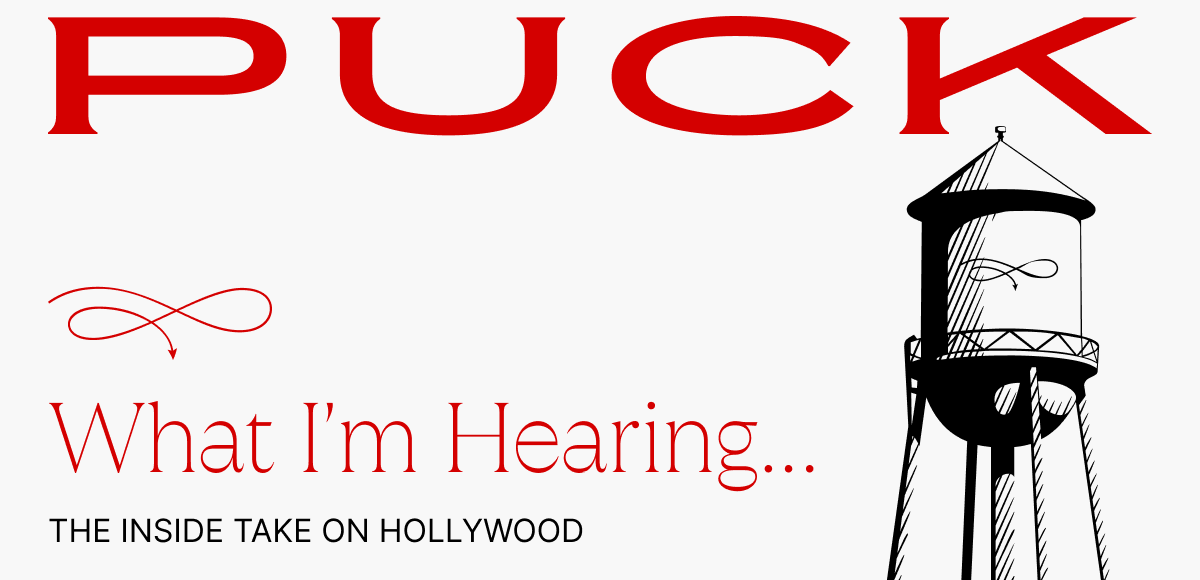
_01JFG8B8EJ31BTA5G9FVG0H0M5.png)
